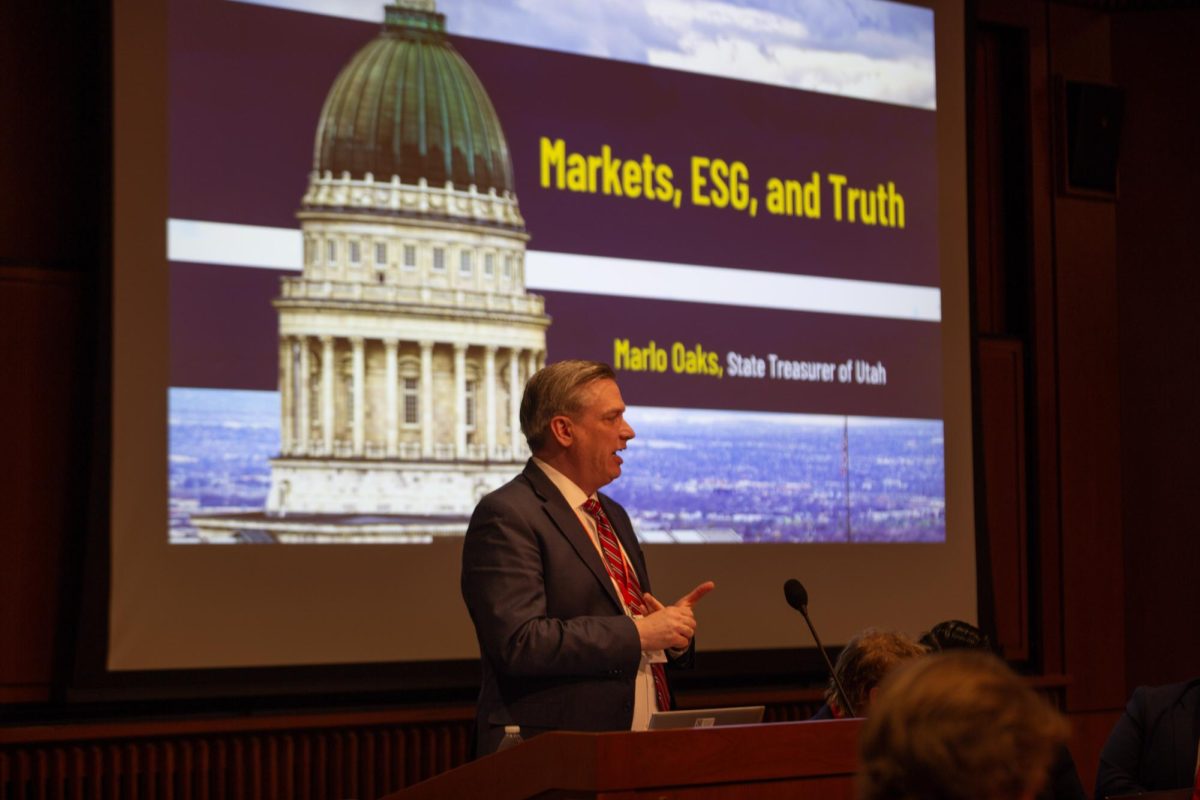Cushman: Stop Giving Nonviolent Offenders Harsh Sentences

(Courtesy Pxfuel)
May 14, 2021
During the summer of my junior year of high school, I had the opportunity to shadow a Utah district court judge for a day. The full day of criminal court proceedings I saw was far from the courtroom I pictured after years of watching “Law and Order” and “Criminal Minds.” The judge gave me a thick packet before court began. Each page gave a short summary of a different defendant, including their charges and previous criminal history. I remember feeling shocked at how many charges were nonviolent drug offenses.
I had this fantasy of courtrooms serving justice to dangerous people and making my community safer, but in reality, many American courtrooms serve harsh sentences to people who simply aren’t dangerous. Treating nonviolent offenders, often drug users, like violent criminals overburdens our justice system, costs us tax dollars, and ultimately does nothing to rehabilitate them. Our legal system will not be able to truly serve justice as long as we treat nonviolent offenders as dangers to society.
The United States houses the largest prison population in the world, with over 2 million people in our jails. That number has increased by 500% over the last 40 years, despite crime itself being on the decline since the 1990s. This extreme rise in prison population can be accounted for by the “war on drugs” that began in the 1970s. In fact, 40,900 people were behind bars for drug offenses in 1980, and that number skyrocketed to 452,964 by 2017. “Tough-on-crime” policies that do little to deter crime further exacerbate the issue of mass incarceration. Policies like mandatory minimums take away the judge’s power to grant leniency, which should be an option with nonviolent criminals. These policies result in a lot of people in prison with little public safety rationale. One analysis showed that 39% of the U.S. prison population, 576,000 people, are behind bars without any reason to think they’re dangerous. Another analysis showed that 3,278 people were serving a sentence for life in prison without parole for nonviolent offenses.
One of those individuals is Dicky Joe Jackson, who was sentenced to life for distributing methamphetamine to pay for life-saving bone marrow treatment for his son. I cannot think of a single parent who wouldn’t do anything they could to save their child’s life, but Jackson received a life sentence for that. He wasn’t a danger to society, but his actions still got him one of the harshest punishments possible.
Without context, these numbers feel intangible, but in the real world, they mean a huge increase in the number of people passing through our court system and into our jails in only 40 years, many of whom are not even dangerous. This significantly increases the load for our lawyers, judges and prisons. It means that there are less resources for every American passing through our courts and prisons and an increased burden on American taxpayers.
The long term effects of going to jail are hard to understand for those of us who do not have any experience with it, but getting out of prison does not mean a new start. Lucky inmates get released to a family member or loved one, but some don’t have anyone. Some leave prison without a way to get anywhere, a place to stay or anything to eat. For David Hudgens, it meant being released at a Metro bus station without a Metro bus card and having to rely on the kindness of drivers to get anywhere. Hudgens explained the temptation to go back to crime was strong because it would’ve been easier. But having been in and out of jail for decades, he wanted this time to be different. For people like Hudgens, their punishment doesn’t end when they leave prison. Their record stays with them for life, dictating where they can live, what jobs they have and if they can vote.
This transition can be even harder for those with substance abuse issues. 65% of incarcerated Americans have a substance abuse disorder (SUD). An additional 20% were under the influence of drugs or alcohol while committing their crime. People with SUDs need rehabilitation treatment, which, if provided in prisons at all, is often inadequate. Not only is locking up nonviolent drug offenders a burden to taxpayers, but it sets up inmates for failure upon release. Rather than issuing drug offenders harsh jail sentences and a record that will keep them from finding a home and a job, we need to focus on giving them the resources to battle addiction.
We are not using our justice system to keep our streets safe. Instead, we use it to punish people for addiction, mental health issues and poverty, all of which are funded by taxpayers. I am not arguing that crime should go unpunished. But it should make people angry to see their resources wasted on nonviolent offenders and their tax dollars funding a court system that gives immoral punishments and little resources for proper recovery. We need a justice system that operates with humanity and gives people sentences that actually match their crime. We need leaders who will work to right the wrongs of tough-on-crime policies by commuting sentences of nonviolent offenders in prison for life and provide resources for any struggling inmates.
We can’t undo all the bad things our legal system has done. We can’t just “un-ruin” lives. However, we can do better. We should demand it. We should support getting rid of outdated, useless tough-on-crime policies like mandatory minimums. We should choose leaders who seek justice over convictions, who believe in forgiveness and second tries and who work to make our system better.
k.cushman@dailyutahchronicle.com
This article was updated May 21, 2021 to clarify a man’s criminal sentence and incarceration status, as well as to correct the spelling of the subject’s name. Dicky Joe Jackson, not Dickey Joe Jackson, received a life sentence for conspiracy to possess and distribute methamphetamine.












John Galt • Mar 18, 2023 at 9:29 pm
FAKE NEWS.
even one of the prisoners mentioned on life sentence was released. !!!!
Doug Smith • May 20, 2021 at 12:32 pm
A little misleading to point to Mr. Jackson “who is in jail for moving and selling methamphetamine” “for life” when he has been out of jail for almost 5 years now.